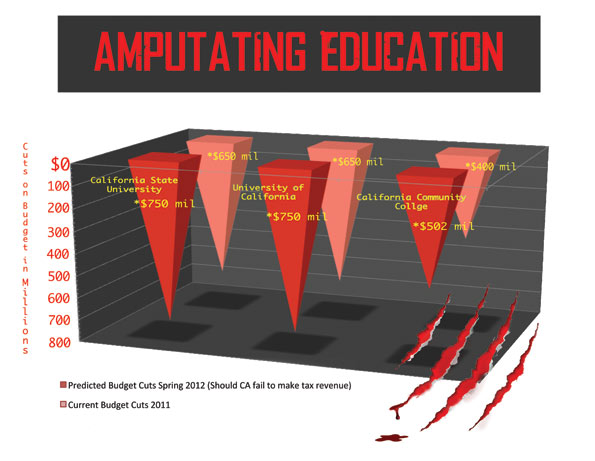Fee increase hits City College
By Anna Shoriak
The Guardsman
California’s last ditch money saving “trigger” may soon be pulled due to the poorly recovering economy – putting into use fine print in California’s budget plan to bail out the cash strapped California Community College system.
On August 22, 2011, California Community College Chancellor Jack Scott and California State University Chancellor Charles B. Reed held a telephone press conference regarding possible increases in tuition fees, to be made in the midst of the 2011-2012 academic year.
Chancellor Reed explained: “Just last week the Department of Finance and the State Controller’s office reported that revenue collections were down about 9%. That’s a trigger for the Community Colleges, CSUs, and UCs that says in December, if the state doesn’t collect a certain amount of revenue, somebody in Finance is going to pull that trigger…”
Chancellor Scott went on to state “We (Community Colleges) will take a 102 million dollar cut if both the trigger cuts are pulled and the problem is that the state…decided… if that happens, they’re going to raise our tuition from $36 a unit to $46 a unit in mid year.”
Instead of paying $540 for a 15-unit course load per semester ($1,080 annually), students would be paying $690 a single semester ($1,380 per year). This is a make or break situation for many student’s pusuing their education.
“I’m not sure what I’ll do if this happens!” exclaimed first year, almost full time student Vanessa Bell. “Right now, I work, go to school, and take care of my family. I did not qualify for financial aid so I paid out of pocket for my classes and textbooks. If this happens, I might have to drop out of school altogether, and focus on my job.”
Chancellor Scott echoed Vanessa’s frustrations saying, “I think this is a tragedy for students and it’s certainly a tragedy for the State of California, who desperately needs more trained personnel.”
When asked about how this could potentially effect our different departments, John Rizzo, president of the City College Board of Trustees, responded “We don’t know, we will know before our meeting at the end of September.”
There is a silver lining on this tarnished cloud: the STAR Act or the Student Transfer Agreement Reform Act. The STAR act was signed into law in September 2010, as a school-wide system that enables Community Colleges to create a transfer degree with the same general education requirements of a California State University. After a student completes 60 units in Community College, only 60 credits more will be required after transferring to CSU.
Chancellor Scott endorsed the STAR act saying “…we realize that in expediting the degrees between these two large institutions, we think that we will be able to serve 40,000 additional Community College students and about 14,000 CSU students. This means that students are going to save time and money, enter the workforce more quickly, and become tax paying citizens. We’re very pleased about that.”


Comments are closed.